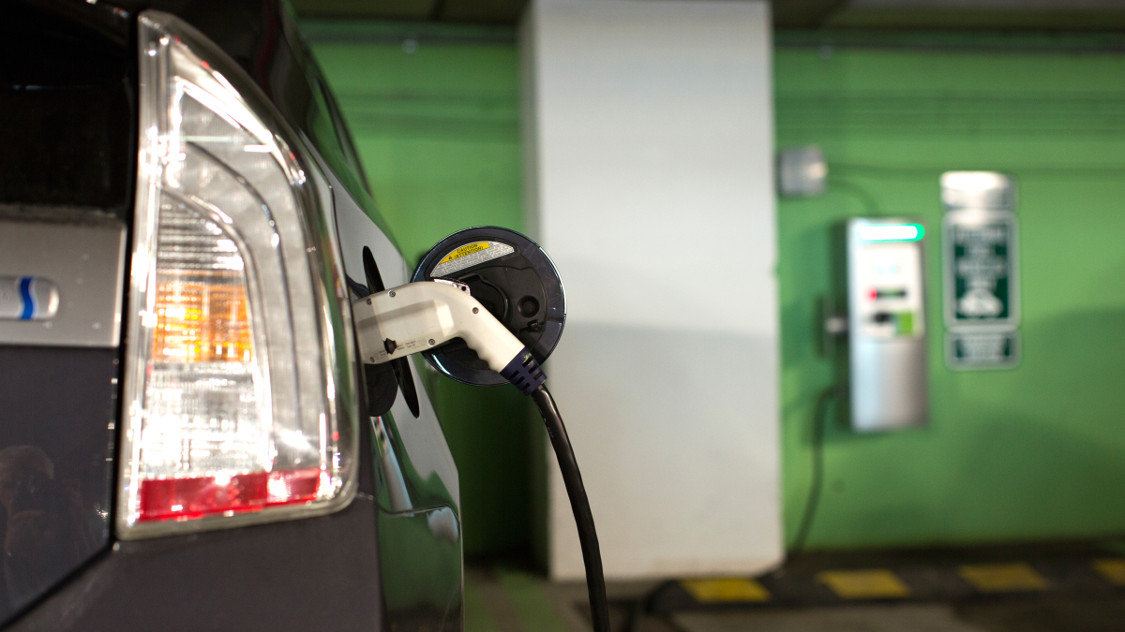What You Can Do At Work To Conserve Energy
With their unique building knowledge, faculty and staff involvement is vital to maximizing energy conservation across campus. It’s easy to get involved.
Interested in greening your space?
The Campus Sustainability Office (CSO) offers a Green Office Certification Program, which is a self-assessment checklist offices can use to assess their current practices, set goals to initiate new practices, and be recognized for their efforts in the following areas: Community Engagement, Energy, Green Events, Purchasing, Recycling, Transportation, and Waste. Get more information about the Green Office & Lab Program!
The following is a simple list of actions faculty and staff can do to produce significant energy savings:
Turn it off/Shut it down:
- Turn off the lights when you leave for the day or for a meeting mid-day,
- Turn off all electrical equipment, when possible, when you leave for the day.
- Use timers to turn other pieces of equipment on and off and ecostripes to help conserve energy when you are away.
- Turn off your computer's monitor when not in use. The monitor consumes over half of the energy used by the average computer. Even if you can't turn it off, always set your computer's energy savings features to put your computer and monitor "to sleep" after 10 minutes which cuts power use nearly to zero.
- Computers: Set power save mode to minimize power use when idle and shut them off if possible on nights and weekends.
- Freezers and Refrigerators: Shut off all that are not in use
- Research Equipment: Shut off all that is not is use
- Space Heaters: Minimize the use of, shut off when gone. “Cozy toes” are available on e-Shop.
- Greenhouse Lighting: Shut off when not needed
- Growth Chambers: Shut off when not in use
- Unplug equipment that drains energy when not in use (i.e. cell phone chargers, fans, coffeemakers, desktop printers, radios, etc.).
Close things not used:
- Close the sash on your fume hood or place in vacant mode when not in use. A typical five foot hood uses $5000 per year in heating/cooling, closing a hood sash can cut the air volume and cost by two third.
- Use shades and blinds as provided to help keep your space cool on sunny days. The shade can reduce your peak cooling load in a south or west facing room by over 30%.
- Report conditions that are not right.
- Promptly report room comfort conditions that are not normal. Rooms that are too hot or too cool may be due to faulty thermostats or other controls that are malfunctioning or have drifted from set-points resulting in wasted energy as well as uncomfortable conditions for you.
- Report drips of water from sink taps, chilled water connections or RO faucets.
Purchase energy efficient equipment:
- Buy energy efficient equipment. Look for the ENERGY STAR® logo or other statements that an electrical device is designed to be energy efficient. Each 1000 watts costs $615 per year in electricity (@$.07/kWhr 2016). If the extra cost of a "high efficiency" unit can be paid for in 5-7 years or less, that is what you should choose.
- When purchasing natural gas powered or consuming devices buy equipment that uses an electronic ignition instead of a pilot light. Pilot lights waste over 20 percent of the gas used in the United States.
Widen Setpoints:
- Ultra Low Freezers: Increase setpoint to industry standards
- Growth Chambers: Widen heating/cooling setpoints with HVAC Shop Assistance
- Thermostats: Lower heating, raise cooling setpoints with HVQC Shop assistance
Increase Efficiency:
- Preventive Maintenance: Ask us about conservation focused PM for your building.
- Coordinate with vending machine vendor to turn off advertising lights.
- Keep heating vents unobstructed.
Smart Choices:
- Use natural lighting or daylighting. Turn off lights near windows if feasible
- Use task lighting. Instead of lighting an entire room, focus the light where needed and directly illuminate work areas.
- Close or adjust window blinds to block direct sunlight to reduce cooling needs during warm months
- In the winter months, open blinds on south-facing windows during the day to allow sunlight to naturally heat your workspace. At night, close the blinds to reduce heat loss at night.
Share with your students:
- Communicate energy conscientious behavior to your students.
Looking to green your travels?
Traveling to and from campus uses vast amounts of energy. By evaluating how your means of transportation has an impact on the environment, we can move towards being a more sustainable campus community. The Campus Sustainability Office has compiled resources with information regarding sustainable commuting options for those traveling to and from work and campus.
Electric vehicle and hybrid charging station in Hoy Parking Garage.

